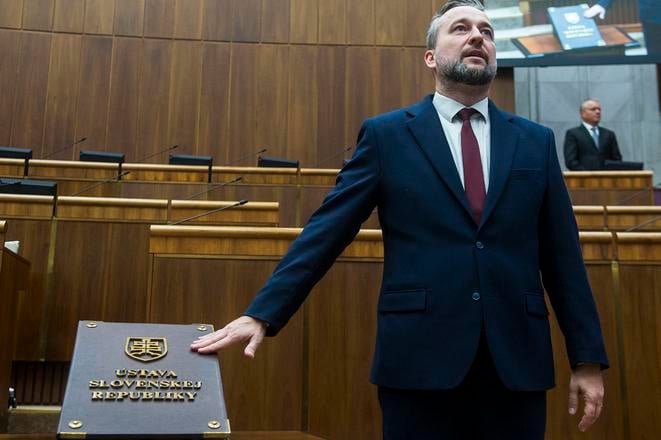Although 34 years have passed since the student demonstrations against the communist regime, while the manifestations of its sympathisers remain unpunished.
Since 1996, when then prime minister Vladimír Mečiar's coalition approved the Law on the Immorality and Illegality of the Communist Regime, the courts have not issued a single decision finding the communist propagandists guilty.
"There remains a kind of tradition that defending the communist establishment or questioning the crimes of communism is not punished in the same way as in the case of other totalitarian regimes," explains Daniel Milo from the Centre for Combating Hybrid Threats at the Interior Ministry.
The law equally applies to any totalitarian ideologies, but the practice looks different.
"As if communism was more accepted not only by the public, but also by the authorities that should deal with it," Milo thinks.
He does not recall a case where someone was convicted for advocating or sympathising with communism. The Sme daily did not find such a judgment in the databases of court decisions either.
The Justice Ministry, led by Boris Susko (Smer), did not respond to questions as to whether one has even existed since 1996.
However, this is not due to the fact that people do not promote communism. A few supporters of the dictatorship are sitting on parliamentary benches.
Deputy Speaker of Parliament Ľuboš Blaha (Smer) recently put a picture of communist revolutionary Ernesto "Che" Guevara on the wall in his parliamentary office, and Slovak National Party (SNS) leader Andrej Danko spoke in front of the image of Joseph Stalin.

